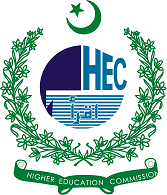Pirs and the Politics of Security: Assessing the influence of Religious Authority on Pakistan’s Strategic Culture
DOI:
https://doi.org/10.58932/MULA0053Keywords:
Pirs, Politics, Strategic Culture, Religious Authority, Security DynamicsAbstract
This research work explores the role of Pirs, spiritual leaders within the ecclesiastic tradition of Pakistan, and their indeterminate role in transforming Pakistan’s strategic culture and security dynamics. Pirs have influenced Pakistan's social and political history by being agents of social cohesion and intermediaries between communities and the government in areas where government reach is limited. This study sheds light on how Pirs reinforce domestic stability, serve counter-radicalization functions, while shaping perceptions and narratives around national security issues. Although moderate Pirs advocate principles of tolerance to curb extremism, their influence can complicate governance, posing a risk where excessive reliance on religious authority might undermine secular spaces and marginalize certain sects. This study advocates a nuanced approach that allows counterterrorism partnerships with moderate Pirs, while ensuring the protection of secular governance. Therefore, Pakistan needs to tread carefully around religious influence and utilize local religious networks to keep the country as stable as possible without undermining state power. This investigation urges to broaden the analysis of the role of religious networks in different contexts and calls for appropriate strategies that reconcile religious and state authority to attain sustainable security and effective governance.
References
Abou Zahab, M., & Roy, O. (2004). Islamist networks: The Afghan-Pakistan connection. Columbia University Press. https://doi.org/10.7312/abou13400
Ahmad, I. (2009). Religion as soft power: The rise of the Tablighi Jamaat and its impact on Pakistan's strategic culture. Pakistan Journal of International Affairs, 62(1), 45–61.
Ahmed, A. S. (1986). Pakistan society: Islam, ethnicity and leadership in South Asia. Oxford University Press.
Ahmed, A. S. (1992). Postmodernism and Islam: Predicament and promise. Routledge.
Akbar, A., Ahmad, S., Nadim, M., Bhatti, M. A. A., & Khan, H. (2024). Affect of Hrm on Employee Motivation Towards Green Creativity and Initiatives. Center for Management Science Research, 2(3), 197-216.
Ahmad, S., Qamar, A. J., Bhatti, M. A. A., & Bashir, U. (2023). Integrating Islamic Ethics with Modern Governance: A Comprehensive Framework for Accountability Across Religious, Social, and Economic Dimensions. Al-Irfan, 8(15), 51-79.
Anjum, G., & Bhatti, M. A. A. Discover the Impact of Internet Usage on the Academic Performance of Library and Information Science Students. Indonesian Journal of Multidiciplinary Research, 4(2), 377-388.
Akbar, A., Ahmad, S., Ali, M., Fayyaz, M. T., Ali, I., & Bhatti, M. A. A. (2024). Employee Development and Training: How HRM Helps in Staying Competitive in the Changing Market Condition. Al-Qanṭara.
Bilici, M. (2012). Finding Mecca in America: How Islam is becoming an American religion. University of Chicago Press.
Bashir, U., Saeed, S., & Abbas, S. K. (2020). Strategies for New Product Development in an Emerging Market. Advances in Social Sciences Research Journal, 7(4), 393-397.
Bhatti, M. B. A., & Khan, M. K. (2024). Implications of Project Managers’ Competencies on Project Success Moderating effect of Project Risk Management: A case of IT Sector in Lahore. Pakistan Journal of Multidisciplinary Research, 5(1), 66-85.
Chughtai, M. A., Bhatti, M. B. A., & Naqvi, I. H. Ethics before Trust in Organization Public Relationships (OPRs): A Review of Real Estate Organizations.
Ewing, K. P. (1983). The politics of Sufism: Redefining the saints of Pakistan. The Journal of Asian Studies, 42(2), 251–268. https://doi.org/10.2307/2055115
Bhatti, M. A. A., & Nazir, M. U. (2024). The Impact of Project Process Management on Sustainable Project Success in the Construction Sector: The Moderating Role of Risk Management Practices. Bulletin of Business and Economics (BBE), 13(2), 1065-1072.
Fair, C. C. (2014). Fighting to the end: The Pakistan Army's way of war. Oxford University Press.
Bhatti, M. B. A., & Durrani, M. K. (2024). The effect of project managers’ competencies on project success with mediating role of project stakeholders’ engagement: A case of IT sector. Journal of Management Info, 11(1), 51-73.
Farooq, I. (2024). The role of Pirs and shrines in the politics of Pakistan: A case study of District Toba Tek Singh. Pakistan Languages and Humanities Review, 8(2), 96–102. https://doi.org/10.47205/plhr. 2024(8-II)09
Gray, C. S. (1999). Modern strategy. Oxford University Press.
Gul, I. (2018). The most dangerous place: Pakistan’s lawless frontier. Penguin Books.
Ghaffar, M. A., Shair, W., Afzal, H., ul Hassan, R., & Bashir, U. (2024). Income and Income Aspiration: Exploring the Impact on Life and Financial Satisfaction. Journal of Economic Impact, 6(3), 257-263.
Huntington, S. P. (1996). The clash of civilizations and the remaking of world order. Simon & Schuster.
Jawad, S., Naveed, H., & Akram, M. B. (2020). Academic Performance of Enrolled Students in the University of Lahore, Pakistan. Quest Journal of Management and Social Sciences, 2(2), 357-365.
Johnston, A. I. (1995). Thinking about strategic culture. International Security, 19(4), 32–64. https://doi.org/10.2307/2539119
Khan, A. M. (2012). Politics of identity: Ethnic nationalism and the state in Pakistan. SAGE Publications.
Lieven, A. (2011). Pakistan: A hard country. Penguin Books.
Malik, J. (1990). Colonialization of Islam: Dissolution of traditional institutions in Pakistan. Brill.
Malik, J. (2006). Sufism in the West. Routledge.
Nasr, S. V. R. (2000). Islamic Leviathan: Islam and the making of state power. Oxford University Press.
Nye, J. S. (1990). Bound to lead: The changing nature of American power. Basic Books.
Rozehnal, R. (2007). Islamic Sufism unbound: Politics and piety in twenty-first century Pakistan. Palgrave Macmillan.
Rafaqat, M. ., Azad, F. ., Ahmad, S. ., Aijaz, K. ., Ikram, S. H. ., Bashir, U. ., Bhatti, M. A. A. ., & Saeed, S. . (2024). Impact of Governance and Strategy Performance on Employer Branding. Research Journal for Societal Issues, 6(2), 852–867.
Shair, W., Bano, S., Afzal, H., ul Hassan, R., & Bashir, U. (2024). Well-Being Dimensions and Environmental Protection: The Role of Health, Life Satisfaction, and Financial Satisfaction. Policy Journal of Social Science Review, 2(4), 783-802.
Schimmel, A. (1975). Mystical dimensions of Islam. University of North Carolina Press.
Shaikh, F. (2009). Making sense of Pakistan. Columbia University Press.
Werbner, P. (2003). Pilgrims of love: The anthropology of a global Sufi cult. Hurst & Company.
Zaman, M. Q. (2002). The ulama in contemporary Islam: Custodians of change. Princeton University Press.




